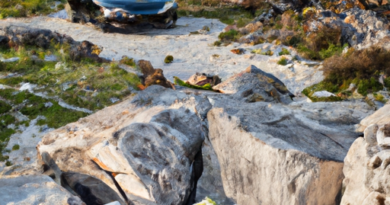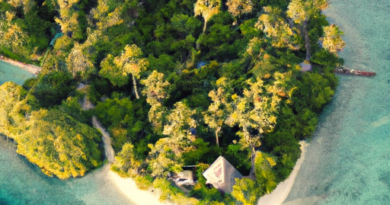Top Safari Destinations in Africa
Are you ready to embark on a wild adventure, surrounded by breathtaking landscapes and magnificent wildlife? Look no further than the top safari destinations in Africa. With a plethora of options to choose from, you’ll have the opportunity to witness the majestic Big Five, explore awe-inspiring national parks and reserves, and immerse yourself in the vibrant cultures of local communities. Whether you prefer a luxury safari or a budget-friendly adventure, there’s an option for every traveler. From the stunning Serengeti to the African savannahs, get ready to experience an unforgettable journey through the heart of the wild. Excitement awaits you on your African safari!
Choosing the Best Safari Tour Operator
When planning a safari trip to Africa, one of the most important decisions you will make is choosing the right safari tour operator. The operator you choose can greatly impact the quality of your safari experience, so it is essential to take the time to research and consider your options. Here are some factors to consider when choosing the best safari tour operator:
Researching tour operators
Start by doing thorough research on different safari tour operators. Look for operators that have a good reputation and extensive experience in organizing safari trips. It is also important to consider the types of safaris they offer and the destinations they specialize in. Some tour operators may focus on specific parks or countries, while others may offer a wider range of options.
Reading reviews and testimonials
Reading reviews and testimonials from previous clients can provide valuable insights into the quality of service offered by different safari tour operators. Look for reviews on independent travel websites and forums to get a more unbiased perspective. Pay attention to reviews that mention the level of customer satisfaction, the professionalism of guides, and the overall organization of the safari. This will give you a good indication of the operator’s reliability and attention to detail.
Taking the time to research and read reviews will help you make an informed decision and choose the best safari tour operator for your African adventure.
Best Time to Go on an African Safari
The best time to go on an African safari can vary depending on several factors. From seasonal variations and weather conditions to wildlife migration patterns, there are multiple considerations to keep in mind when planning your safari trip.
Seasonal variations
Africa experiences different seasons throughout the year, and the climate can vary greatly from region to region. It is important to understand the seasonal variations in the areas you plan to visit. The dry season, typically occurring during the winter months, is often considered the best time for safari due to the lower vegetation and the increased visibility of wildlife.
Weather conditions
Weather conditions can greatly impact your safari experience. Extremes of heat or rain can impact animal behavior and your ability to spot wildlife. It is essential to check the weather patterns and climate of the specific regions you plan to visit to ensure favorable conditions.
Migration patterns
One of the most spectacular events in the African safari experience is the great migration. The migration patterns of wildebeests and other herbivores in search of greener pastures can be a breathtaking sight. Understanding the migration patterns in different regions can help you plan your safari trip around this natural wonder.
By considering seasonal variations, weather conditions, and migration patterns, you can choose the best time to go on an African safari and maximize your wildlife viewing opportunities.
Safari Destinations in Africa
Africa is home to a wide range of magnificent safari destinations, each offering unique wildlife experiences and breathtaking landscapes. Here are some of the top safari destinations in Africa:
Serengeti National Park
Located in Tanzania, the Serengeti National Park is renowned for its vast savannahs and the great migration of millions of wildebeests, zebras, and other herbivores. It also hosts a diverse range of wildlife, including lions, elephants, giraffes, and cheetahs.
Maasai Mara National Reserve
Situated in Kenya, the Maasai Mara National Reserve is known for its abundant wildlife, including the iconic Big Five. It is also a significant location for the great migration, with vast herds of wildebeests crossing the Mara River.
Kruger National Park
Kruger National Park in South Africa is one of the largest game reserves in Africa. It offers a wide range of wildlife, including the Big Five, along with diverse bird species and stunning landscapes.
Okavango Delta
The Okavango Delta in Botswana is a unique safari destination, known for its labyrinth of waterways, islands, and wetlands. It provides excellent opportunities for viewing wildlife from both land and water.
Chobe National Park
Chobe National Park, also located in Botswana, is famous for its large elephant population. Visitors to Chobe can witness impressive herds of elephants gathering on the banks of the Chobe River.
Etosha National Park
Etosha National Park in Namibia is known for its unique salt pan, attracting a variety of wildlife, including lions, rhinos, zebras, and giraffes. It is also home to a diverse range of bird species.
Amboseli National Park
Amboseli National Park in Kenya offers stunning views of Mount Kilimanjaro as a backdrop to wildlife-rich grasslands. Visitors can witness large elephant herds and a variety of bird species in this picturesque setting.
Ngorongoro Crater
The Ngorongoro Crater in Tanzania is a UNESCO World Heritage site and an excellent location for viewing wildlife. The crater’s unique ecosystem supports a wide range of animals, including elephants, zebras, and hyenas.
Mana Pools National Park
Mana Pools National Park in Zimbabwe is known for its beautiful riverine landscape and diverse wildlife. Visitors can experience walking safaris and witness animals gathering around the Zambezi River.
Marakele National Park
Marakele National Park in South Africa offers stunning mountain scenery and abundant wildlife, including the Big Five. The park is also a haven for birdwatchers, with over 400 bird species recorded.
These safari destinations provide an incredible opportunity to witness Africa’s rich biodiversity and experience the thrill of encountering wildlife in their natural habitats.
Wildlife to See in the Serengeti
The Serengeti National Park is a wildlife enthusiast’s dream, offering a chance to see a diverse range of animals in their natural habitat. Here are some of the wildlife highlights you can expect to see in the Serengeti:
The Big Five
The Serengeti is home to all members of the renowned Big Five, including lions, elephants, buffalos, leopards, and rhinoceros. These iconic animals are a major draw for wildlife lovers and are a must-see during a safari in the Serengeti.
Great Migration
The great wildebeest migration is one of the most awe-inspiring wildlife spectacles in the world. Each year, millions of wildebeests, zebras, and gazelles embark on a journey across the Serengeti in search of fresh grazing grounds. Witnessing the mass movement of animals and the famous river crossings is an unforgettable experience.
Cheetahs
The Serengeti is one of the best places in Africa to spot cheetahs. These magnificent predators can be seen hunting across the plains or resting on rocky outcrops. Their slender bodies and speed make for a thrilling encounter.
Giraffes
The Serengeti is home to healthy populations of giraffes, with their graceful long necks towering above the savannah. Spotting these majestic creatures as they browse on treetops is a common sight during a safari in the Serengeti.
Hippos
The Serengeti is also home to large populations of hippos, which can often be found wallowing in rivers and pools. With their massive bodies and distinctive grunts, hippos are an intriguing and often humorous species to observe.
Crocodiles
The rivers and water bodies of the Serengeti are home to Nile crocodiles, one of Africa’s most formidable and ancient predators. These reptiles can often be seen basking in the sun or lurking in the water, waiting for an opportunity to strike.
The Serengeti’s abundant wildlife ensures that every game drive and safari experience is filled with thrilling encounters and unforgettable memories.
Preparing for a Safari Trip
Proper preparation is key to ensuring a successful and enjoyable safari trip. Here are some important considerations to keep in mind when preparing for your safari adventure:
Clothing and gear essentials
Packing appropriate clothing and gear is crucial for a comfortable and safe safari experience. Opt for lightweight, breathable clothing in neutral colors to blend in with the surroundings. Layering is important as temperatures can vary throughout the day. Don’t forget essentials such as a wide-brimmed hat, sunscreen, insect repellent, and sturdy walking shoes. Binoculars, a camera, and extra memory cards are also must-haves for capturing memorable moments.
Health and vaccination requirements
Before embarking on a safari trip, it is important to check the health and vaccination requirements of the countries you plan to visit. Consult with your doctor or a travel health clinic for advice on necessary vaccinations and precautions to take for malaria and other potential health risks.
Packing tips
When packing for a safari, it is essential to pack light and only bring the essentials. Many safari lodges and camps have laundry services, so you can pack fewer clothes and plan for a laundry day. It is also important to pack clothing that offers protection against sun exposure and insects. Additionally, pack a small first aid kit with essentials like band-aids, antiseptic cream, and any necessary medications.
By properly preparing for your safari trip and packing the right clothing, gear, and essentials, you can ensure a hassle-free and enjoyable experience in the African wilderness.
Safaris for Families with Children
Safaris provide an excellent opportunity for families to bond and create lasting memories. Many safari lodges and camps cater specifically to families, offering a safe and engaging environment for children. Here are some important considerations when planning a safari trip with children:
Family-friendly lodges and camps
When planning a safari trip with children, it is essential to choose family-friendly lodges and camps. Look for accommodations that offer spacious family rooms or interconnected tents, child-friendly amenities, and activities specifically designed for children. Some lodges even have swimming pools or dedicated play areas to keep children entertained when not out on game drives.
Age restrictions and safety precautions
Different lodges and camps may have age restrictions for children due to safety considerations or the nature of the activities offered. It is important to check with the safari tour operator or accommodation provider regarding any age restrictions and safety precautions in place. This will help ensure the safety and enjoyment of all family members during the safari experience.
Engaging activities for children
To keep children engaged and entertained during a safari trip, look for lodges and camps that offer special activities for children. These can include guided nature walks, educational programs, or even junior ranger programs where children can learn about the wildlife and conservation efforts. These activities provide a fun and educational experience while fostering a love for nature and wildlife.
By choosing family-friendly accommodations and engaging activities, you can ensure that your children have a memorable and enjoyable safari experience.
Accommodation Options on Safari
Accommodations on safari can vary from luxurious lodges and tented camps to budget-friendly camping options and self-catering accommodations. Here are some of the accommodation options you can consider for your safari trip:
Luxury lodges and tented camps
Luxury lodges and tented camps offer the ultimate safari experience for those seeking comfort and luxury. These accommodations often feature spacious en-suite rooms or tents with modern amenities, such as comfortable beds, private verandas, and luxurious bathrooms. Gourmet meals, personalized service, and guided game drives are typically included in the package.
Budget-friendly camping options
For those on a tighter budget, camping can be a more affordable option. Many national parks and reserves offer designated camping sites with basic facilities, such as shared ablution blocks and cooking areas. Bringing your own camping gear or renting it locally is usually required for this type of accommodation.
Self-catering accommodations
Self-catering accommodations, such as self-contained cottages or chalets, offer a mix of comfort and independence. These accommodations typically come equipped with kitchen facilities, allowing you to prepare your own meals. They are a great option for families or those who prefer more flexibility and privacy.
When choosing your safari accommodation, consider your budget, desired level of comfort, and the type of experience you are looking for. Whether you prefer luxury lodges, budget camping, or self-catering options, there is an accommodation choice that will suit your needs.
Self-Drive Safari vs Guided Safari Tour
When planning a safari trip, one of the decisions you will need to make is whether to embark on a self-drive safari or join a guided safari tour. Both options have their advantages, and the choice ultimately depends on your preferences and level of comfort.
Benefits of self-drive safari
A self-drive safari gives you the freedom to explore at your own pace and create your own itinerary. It allows you to have full control over your safari experience, from the choice of destinations to the length of time spent in each location. It also offers an opportunity to connect with the natural surroundings and immerse yourself in the wilderness.
Advantages of guided safari tour
Joining a guided safari tour can offer several benefits, especially for first-time visitors or those who prefer a more structured and hassle-free experience. A knowledgeable guide will provide valuable insights into the wildlife and ecosystems, ensuring a richer understanding of the safari experience. They are also experienced in navigating the terrain, maximizing wildlife sightings, and ensuring your safety throughout the journey.
Factors to consider for each option
When deciding between a self-drive safari and a guided safari tour, consider factors such as your level of experience, comfort with navigation, and desire for independence. If you have limited experience or prefer a more structured experience, a guided safari tour may be the better option. However, if you are an experienced traveler and enjoy the freedom of independent exploration, a self-drive safari can provide a more personalized and flexible experience.
Consider your preferences and choose the option that best suits your comfort level and desired safari experience.
Guidelines for Interacting with Wildlife
When on a safari, it is essential to remember that you are a guest in the animals’ natural habitat. Interacting with wildlife should be done with utmost respect and caution to ensure the safety and well-being of both humans and animals. Here are some guidelines to follow when encountering wildlife on safari:
Maintaining a safe distance
Wild animals are not accustomed to human presence and may perceive close proximity as a threat. It is important to maintain a safe distance to avoid disturbing or provoking them. Follow the guidelines provided by your safari guide or ranger to ensure a respectful and safe distance is maintained at all times.
Avoiding direct eye contact
Direct eye contact can be interpreted as a sign of aggression in the animal kingdom. It is important to avoid prolonged eye contact with wildlife, as it may trigger defensive or aggressive behavior. Instead, maintain a relaxed posture and observe the animals from a respectful distance.
Respecting animal behavior
Animals in the wild may exhibit unpredictable behavior, especially when they feel threatened or provoked. It is crucial to respect the animals’ boundaries and never attempt to feed or touch them. Avoid making sudden movements or loud noises that may startle or agitate the animals. By observing from a safe distance and allowing the animals to behave naturally, you can ensure a harmonious coexistence with the wildlife.
Following these guidelines will help protect both you and the wildlife, ensuring a safe and memorable safari experience.
Combining Beach and Safari Holidays
If you are looking to combine relaxation and adventure, a beach and safari holiday in Africa can be the perfect choice. Here are some popular beach and safari combinations to consider:
Zanzibar and Serengeti
Combining the pristine beaches of Zanzibar with the world-famous Serengeti National Park offers the best of both worlds. Start with a safari adventure in the Serengeti, witnessing the great migration and exploring the diverse wildlife. Then, head to Zanzibar for some relaxation on the stunning white sandy beaches and explore the vibrant culture and history of Stone Town.
Mauritius and Kruger
A beach holiday in the paradise island of Mauritius can be paired with an unforgettable safari experience in South Africa’s Kruger National Park. Explore the rich biodiversity and wildlife of Kruger and then unwind on the idyllic beaches of Mauritius, known for their turquoise waters and luxurious resorts.
Kenya Coast and Maasai Mara
Combine a beach holiday on the beautiful Kenyan coastline with an exhilarating safari in the Maasai Mara National Reserve. Witness the great migration and encounter the Big Five during your safari adventure. Then, relax on the pristine beaches of Diani, Watamu, or Lamu, and soak in the warm Indian Ocean.
By combining a beach and safari holiday, you can create a well-rounded and unforgettable travel experience, enjoying the beauty of both land and sea.
In conclusion, planning a safari trip involves several important decisions, from choosing the best tour operator to selecting the right time for your adventure. Researching, reading reviews, and considering factors such as wildlife, accommodations, and interaction guidelines will help you make informed choices and have a memorable safari experience in Africa. Whether you are a wildlife enthusiast, a family with children, or a traveler seeking the perfect combination of relaxation and adventure, Africa’s diverse safari destinations offer something for everyone. So pack your bags, immerse yourself in the wilderness, and embark on an unforgettable journey through the magnificent landscapes and wildlife of Africa.




